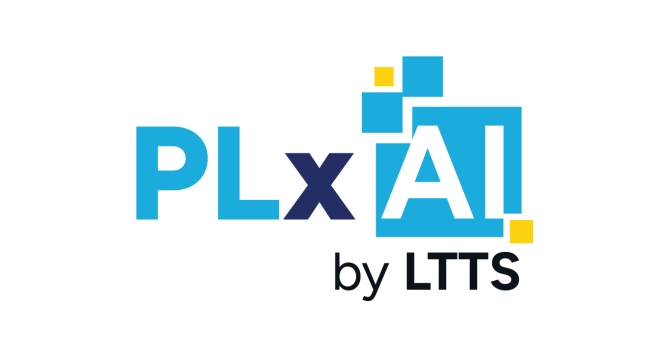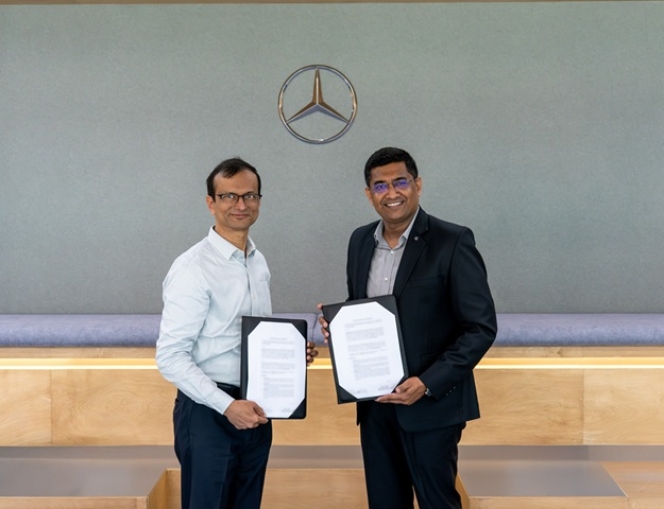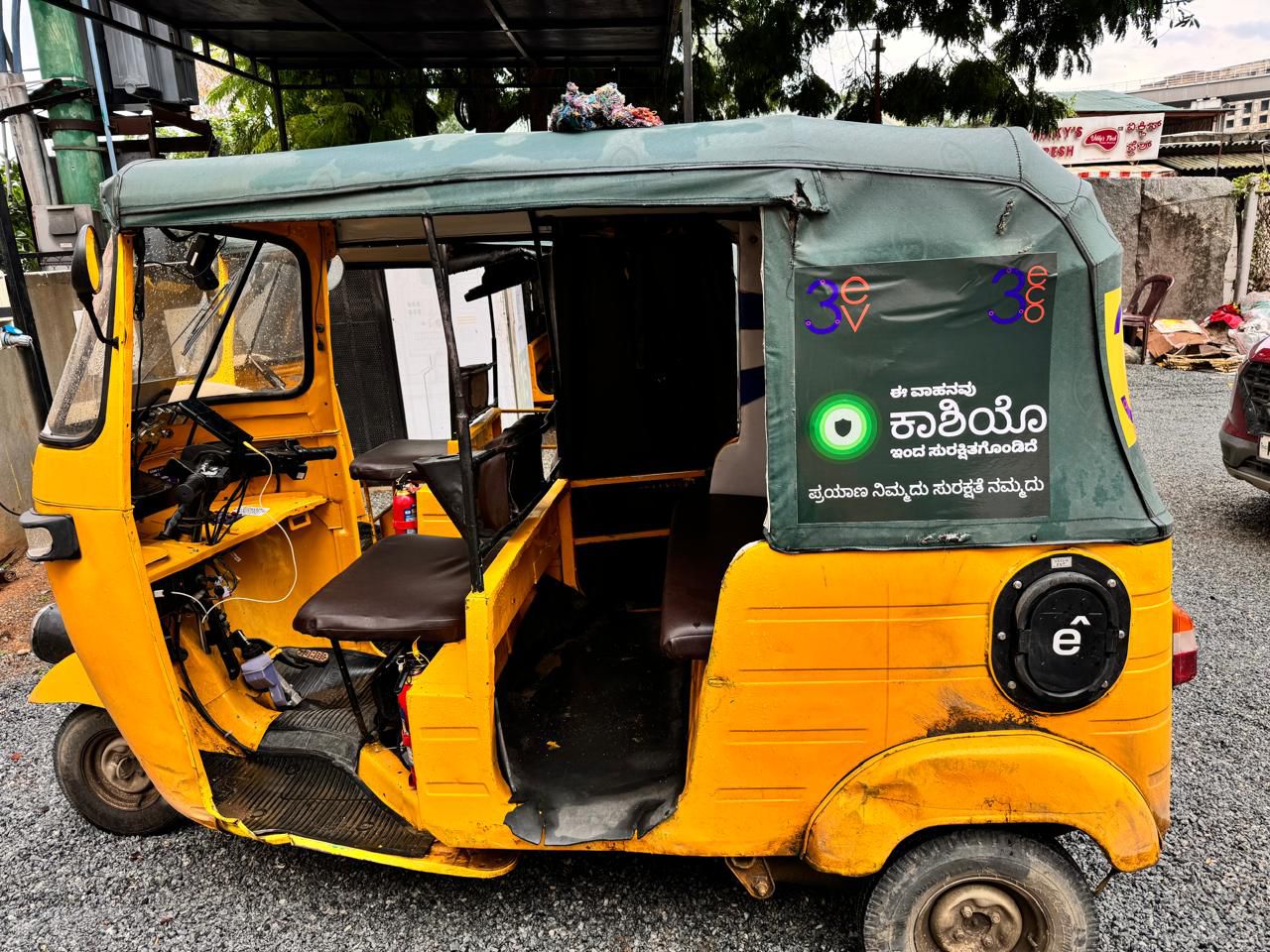LTTS Unveils AI Framework to Speed Up Product Development
- By MT Bureau
- August 22, 2025

L&T Technology Services (LTTS) has launched PLxAI, a new proprietary generative AI (GenAI) framework designed to accelerate and optimise the product development life cycle for its global clients. The framework, developed by the company's in-house experts, aims to streamline the process from initial concept to post-launch support.
PLxAI leverages both generative and conventional AI to offer a comprehensive solution for developing scalable and reusable solutions across the entire product development process. It is built with a versatile architecture that makes it adaptable for both embedded systems and software development.
A key feature of PLxAI is its ability to capture and utilise existing knowledge, including an organisation's internal or 'tribal' knowledge. This helps it provide context-aware insights that enhance product engineering. The framework also integrates smart prompting and contextual intelligence to improve every stage of the process, from initial design to final validation and aftermarket support.
LTTS has already deployed over 36 use cases of PLxAI, with an additional 35 in the design phase. These applications span various stages of product development, including:
- Concept Design: Assisting with competitive analysis and technology scouting.
- Component Design: Generating specifications, diagrams and calculations.
- Validation Planning: Automatically creating Design Validation Plans and DFMEA templates.
- Failure Mode Analysis: Generating customisable FMEA documents using organisational templates.
- Digital Twin Integration: Supporting both physical and virtual testing workflows.
- Agentic Workflows: Using proactive agents to automate multi-step engineering tasks.
Alind Saxena, President & Executive Director - Mobility & Tech, L&T Technology Services, said,“This is a proud milestone for Team LTTS. The development of PLxAI by our in-house AI experts is a testimony to LTTS’ engineering and technology capabilities. It reaffirms our deep commitment toward driving global client success across Mobility, Sustainability and Tech leveraging the power of AI and Gen-AI based offerings. The enthusiasm from our global clients has been remarkable, with deployments already underway across multiple domains.”
By accelerating innovation and optimising costs, LTTS believes that PLxAI will redefine how businesses approach product development, unlocking new avenues for growth and efficiency.
Tata Elxsi Launches DevStudio.ai To Automate Automotive Software Engineering
- By MT Bureau
- March 05, 2026

Tata Elxsi has launched DevStudio.ai, a multi-agent generative AI (GenAI) platform designed to accelerate the automotive software development lifecycle (SDLC). The solution is purpose-built for OEMs, system suppliers and semiconductor companies to address the engineering requirements of software-defined vehicles (SDVs).
DevStudio.ai is aligned with ASPICE (Automotive Software Process Improvement and Capability dEtermination) standards. It utilises a multi-agentic architecture that allow AI co-engineers to collaborate with human teams across engineering workflows. The platform is compatible with cloud-based infrastructure and air-gapped on-premise environments to comply with enterprise AI policies.
Unlike general-purpose AI tools, DevStudio.ai focuses on the complexity and safety requirements of the automotive sector. It supports the ASPICE V-cycle stages, including requirements engineering, architecture, implementation, and qualification testing.
The platform provides several capabilities:
- Traceability: Maintains end-to-end links across the engineering lifecycle.
- Toolchain Integration: Connects with existing OEM and Tier-1 engineering software environments.
- LLM Support: Operates with multiple Large Language Models (LLMs).
- Domain Coverage: Supports software development for body, chassis, infotainment, and SDV architectures.
The platform has been deployed in select programmes by global OEMs and suppliers in North America, Japan and India. Early use cases have reported productivity gains and reduced time-to-market for safety-critical systems.
Sundar Ganapathi, Chief Technology Officer – Automotive, Tata Elxsi, said, “The automotive industry is at an inflection point. Competitive pressures now demand software development at China speed. At the same time, companies must maintain automotive-grade quality and meet global industry standards. DevStudio.ai helps address this challenge. It brings the power of generative AI into the automotive software development lifecycle. This enables OEMs and suppliers accelerate development, while maintaining the rigor required for safety-critical automotive systems.”
Pallavi Dalal, Head – Automotive GenAI and AI Practice, Tata Elxsi, added, “DevStudio.ai represents the culmination of intensive research and development between our automotive domain and GenAI specialist teams. We see the future of automotive software development where an AI co-engineer works alongside every engineer. To realise this vision, we are partnering with the entire innovation ecosystem, from leading GenAI companies to hyperscalers, to build and scale DevStudio.ai. This is Future forward for automotive engineering.”
- Mercedes-Benz Research and Development India
- MBRDI
- Indian Institute of Technology Delhi
- IIT Delhi
- Nirat Ray
- Saurabh Saxena
- Manu Saale
- Preeti Ranjan Panda
MBRDI And IIT Delhi Sign 5-Year Agreement For Advancing Industry-Academia Research
- By MT Bureau
- March 05, 2026

Mercedes-Benz Research and Development India (MBRDI) and the Indian Institute of Technology Delhi (IIT Delhi) have announced a five-year Master Research Agreement (MRA) to facilitate joint research programmes and knowledge development between industry and academia.
The collaboration focuses on technologies including quantum systems, materials, neuromorphic engineering and electric mobility. The initiative seeks to combine academic research with engineering requirements to develop intellectual property and technology solutions.
The first phase of the agreement involves a project centred on quantum sensors and battery systems. This research is led by Prof. Nirat Ray from the Department of Materials Science and Engineering and Prof. Saurabh Saxena from the Centre for Automotive Research and Tribology.
The partnership will concentrate on:
- Quantum Technologies: Development of sensors for vehicle systems.
- Future Materials: Research into substances for automotive engineering.
- Neuromorphic Engineering: Mimicking biological neural structures for computing.
- Electric Mobility: Advancing battery systems and power electronics.
The teams will work on interdisciplinary research, prototype development, and validation of technologies intended for the mobility sector.
Manu Saale, Managing Director and CEO, Mercedes-Benz Research and Development India, said, “This year marks 140 years since the invention of the automobile, a chapter that reflects the beginning of Mercedes‑Benz’s journey in shaping mobility. MBRDI is also celebrating a milestone as we mark 30 years of engineering excellence in India. We envision a future where academia and industry are systemically partnering to realise real-world challenges and provide meaningful breakthroughs. In that context, our collaboration with IIT Delhi is a significant leap for our legacy of innovation, helping us redefine mobility faster and better. Together, we aim to shape solutions that make a difference today and in the years ahead.”
Prof. Preeti Ranjan Panda, Dean of Corporate Relations at IIT Delhi, stated, “We are pleased to partner with MBRDI in this collaboration, which builds upon IIT Delhi's commitment to enable knowledge exchange and co-creation with industry partners. Through this initiative, the Institute seeks to advance high-quality research and generate impactful innovations that enable sustainable, affordable, and future-ready mobility. Our objective is to develop solutions that address India’s mobility challenges while establishing new benchmarks for global impact.”
3ev Industries And 3eco Systems Partner With Cautio To Deploy AI Dash Cameras Across 10,000 E3Ws
- By MT Bureau
- March 05, 2026

3ev Industries, a Bengaluru-based three-wheeler electric vehicle (EV) OEM manufacturer, and 3eco Systems, a full-stack EV logistics platform, have entered into a strategic partnership with Cautio, one of India’s leading video telematics companies, to install the latter's AI-powered dash camera systems across their electric three-wheeler fleet. The collaboration involves installing systems from Cautio into 10,000 electric three-wheelers. This initiative is designed to enhance protection for drivers, passengers and the wider community, with over 1,200 vehicles already operational in Bengaluru and Chennai. Crucially, Cautio’s dashcams will become a standard factory-installed feature on all new vehicles produced by 3ev.
This move represents a significant shift in India's electric mobility landscape by establishing safety as a fundamental, built-in component from the manufacturing stage. The partnership aims to create a comprehensive data network that links the original equipment manufacturer with the fleet operator while prioritising driver welfare and using data-driven accountability as a key market advantage. As electric fleets expand, the focus is expected to move beyond simply electrifying vehicles to incorporating intelligent systems that ensure safety and operational efficiency.

The decision to collaborate with Cautio followed a rigorous assessment of various global and domestic telematics platforms. Key evaluation criteria included performance in edge computing, the precision of real-time alerts and device durability in challenging environments characterised by high temperatures and dust. A pivotal factor was Cautio’s India-centric design philosophy. Unlike systems developed for highway driving in mature markets, Cautio’s technology is specifically tailored for the complexities of Indian urban conditions, such as congested traffic, unreliable 4G connectivity and extreme weather. Its architecture processes data directly on the device, ensuring core safety functions remain operational even without a stable cloud connection, thereby minimising latency and blind spots.
The AI-driven system employs computer vision to continuously monitor driver behaviour, issuing instant alerts upon detecting signs of fatigue, distraction or mobile phone usage. Concurrently, Advanced Driver Assistance Systems (ADAS) analyse the road environment to warn of potential collisions and lane deviations, a critical function in India’s mixed-traffic scenarios. All trip data is consolidated into a centralised dashboard, offering fleet managers real-time, comprehensive oversight of their operations.

Beyond the hardware installation, the multi-year agreement includes a joint commitment to research and development, driver training and community road safety initiatives. The collective goal is to develop a scalable and structured approach to safety within the electric three-wheeler sector. As citywide fleet electrification progresses and safety regulations evolve, the integration of such embedded AI systems is anticipated to become increasingly vital to operational protocols and risk mitigation strategies.
Suman Mishra, Director, 3eco Systems, said, “Our objective was not just to add monitoring hardware but to deploy technology that meaningfully supports drivers on the road.”
Karan Kadaba, Director, 3ev Industries, said, “Following a detailed evaluation across global and domestic platforms, Cautio emerged as the right partner, combining technical capability with a deep understanding of Indian operating conditions. Other platforms required reliable 4G connectivity that simply does not exist across all our routes. This collaboration reflects our continued focus on building a safety-first operating framework for drivers, fleet partners and passengers.”
Ankit Acharya, Co-Founder & CEO, Cautio, said, “What we are building with 3ev Industries and 3eco Systems is not a vendor-client relationship. It is a shared mission. The electric three-wheeler driver is the new face of India’s urban mobility workforce. These are young people building livelihoods, serving communities, connecting cities. They deserve the same level of safety that protects drivers in premium fleets. But safety cannot stop at a device – it must extend to how we train drivers, how we develop technology and how we hold ourselves accountable to the communities we serve. India is asking for safer roads. With 3ev and 3eco, we are answering. This is more than a deployment. This is the start of building a safer country.”
- 3ev Industries
- 3eco Systems
- Cautio
- ADAS
- driver monitoring system
- Suman Mishra
- Karan Kadaba
- Ankit Acharya
3ev Industries And 3eco Systems To Deploy Cautio AI Dash Cams Across 10,000 EVs
- By MT Bureau
- March 05, 2026

3ev Industries, an electric three-wheeler manufacturer and 3eco Systems, an EV logistics platform, have announced a partnership to equip 10,000 electric vehicles with AI-powered dash cameras. The hardware, manufactured by video telematics company Cautio, will become a standard feature on all vehicles produced by 3ev Industries.
At present, 1,200 vehicles equipped with the technology are operational in Bengaluru and Chennai. The remaining units in the 10,000-vehicle commitment will be rolled out across OEM and fleet platforms, representing a large-scale safety integration for the Indian three-wheeler segment.
The Cautio systems use an architecture designed for Indian urban conditions, characterised by high temperatures, dust and inconsistent 4G connectivity. The technology employs edge computing to process data on the device, reducing reliance on cloud connectivity for safety functions.
The key feature of the integrated AI technology include Driver Monitoring System (DMS), Advanced Driver Assistance Systems (ADAS) sensors, real-time alerts and operational dashboard for fleet operators.
The collaboration extends to joint research and development, driver training programmes, and road safety advocacy. By embedding safety systems at the factory level, the partners aim to establish a framework for risk management as fleet electrification scales.
Suman Mishra, Director, 3eco Systems, said, “Our objective was not just to add monitoring hardware, but to deploy technology that meaningfully supports drivers on the road. Following a detailed evaluation across global and domestic platforms, Cautio emerged as the right partner, combining technical capability with a deep understanding of Indian operating conditions. Other platforms required reliable 4G connectivity that simply does not exist across all our routes.”
Karan Kadaba, Director, 3ev Industries, added, “This collaboration reflects our continued focus on building a safety-first operating framework for drivers, fleet partners, and passengers.”
Ankit Acharya, Co-Founder & CEO, Cautio, said, “The electric three-wheeler driver is the new face of India’s urban mobility workforce. These are young people building livelihoods, serving communities, connecting cities. They deserve the same level of safety that protects drivers in premium fleets. But safety cannot stop at a device - it must extend to how we train drivers, how we develop technology, and how we hold ourselves accountable to the communities we serve.”






Comments (0)
ADD COMMENT